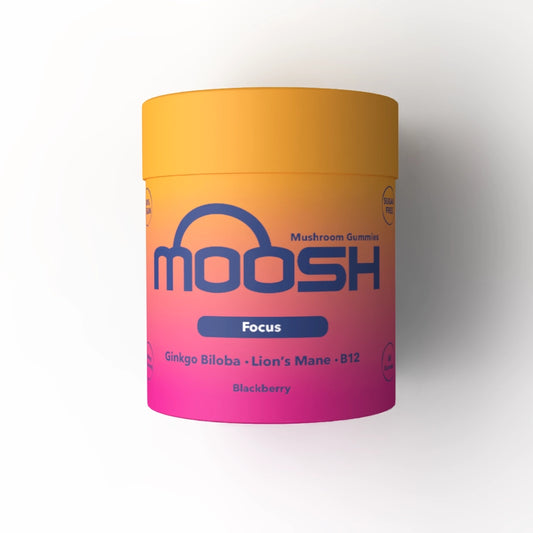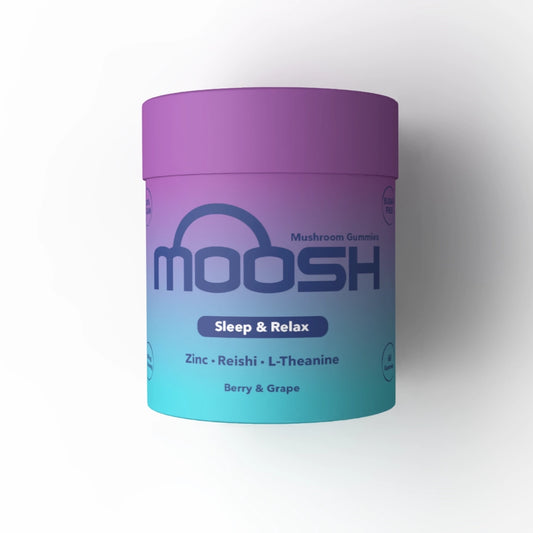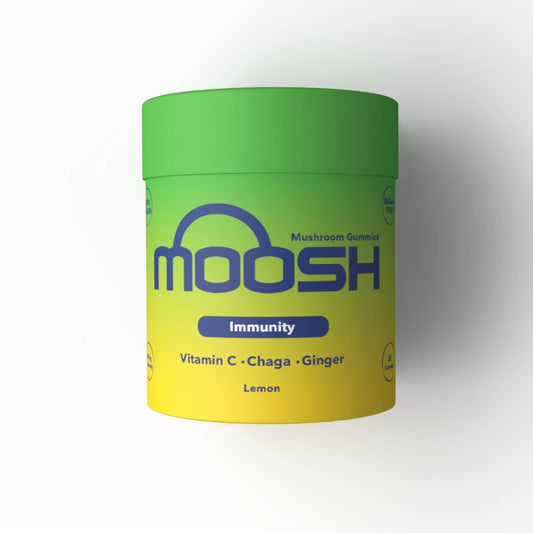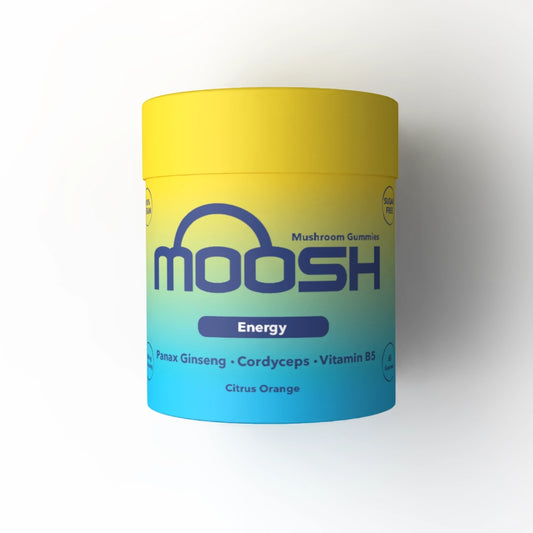What is Insomnia?
Insomnia is a common sleep disorder characterised by difficulty falling asleep, staying asleep, or experiencing non-restorative sleep despite adequate opportunities for rest. According to the American Academy of Sleep Medicine, insomnia is the most prevalent sleep disorder, affecting about 10% of adults chronically and up to 30% occasionally. Insomnia can significantly impair daily functioning and quality of life, leading to cognitive deficits, mood disturbances, and decreased performance in various domains.
Insomnia Symptoms
The primary symptoms of insomnia include:
- Difficulty falling asleep at night
- Waking up during the night and having trouble returning to sleep
- Waking up too early in the morning
- Not feeling well-rested after a night's sleep
- Daytime tiredness or sleepiness
- Irritability, depression, or anxiety
- Difficulty paying attention, focusing on tasks, or remembering
- Increased errors or accidents
- Ongoing worries about sleep
Types of Insomnia
Insomnia can be categorised based on its duration and underlying causes:
- Acute Insomnia: Short-term insomnia lasting for a few days to weeks, often triggered by stress or a traumatic event.
- Chronic Insomnia: Long-term insomnia occurring at least three times per week for three months or longer, often linked to underlying health issues or psychological conditions.
- Primary Insomnia: Insomnia not directly associated with any other health condition or problem.
- Secondary Insomnia: Insomnia caused by other conditions, such as medical issues, psychiatric disorders, medications, or substance use.
Insomnia Causes
The causes of insomnia are multifaceted and can be broadly categorised into psychological, physiological, and lifestyle-related factors:
- Psychological Causes:
- Stress related to work, school, health, finances, or family
- Anxiety disorders, including generalised anxiety disorder and post-traumatic stress disorder (PTSD)
- Depression and other mood disorders
- Physiological Causes:
- Chronic pain conditions such as arthritis or fibromyalgia
- Respiratory problems like asthma or sleep apnea
- Gastrointestinal issues, including acid reflux
- Neurological conditions such as Parkinson’s disease
- Lifestyle-Related Causes:
- Irregular sleep schedules due to shift work or frequent travel (jet lag)
- Poor sleep habits, including excessive use of electronic devices before bed
- Substance use, such as caffeine, nicotine, and alcohol
Risk Factors
Age: Insomnia is More Common with Increasing Age
As people age, the prevalence of insomnia tends to increase. Several reasons contribute to this phenomenon:
- Changes in Sleep Architecture: Older adults experience changes in their sleep patterns, including lighter sleep, more frequent awakenings, and a decrease in deep sleep stages. These changes can make it more difficult to achieve restful sleep.
- Medical Conditions: Aging is often accompanied by an increase in chronic health conditions such as arthritis, diabetes, and cardiovascular diseases, which can disrupt sleep. Pain and discomfort associated with these conditions often make it harder to fall and stay asleep.
- Medications: Many older adults take multiple medications, some of which can interfere with sleep. For example, beta-blockers, used for high blood pressure, can cause sleep disturbances.
- Changes in Circadian Rhythms: The body's internal clock, or circadian rhythm, can shift with age, leading to earlier bedtimes and wake times. This shift can result in difficulty maintaining sleep throughout the night.
- Psychological Factors: Older adults might experience increased stress or anxiety related to ageing, retirement, or loss of loved ones, all of which can contribute to insomnia.
Gender: Women Are More Likely to Experience Insomnia Than Men, Particularly During Hormonal Changes Such as Menopause
Women have a higher risk of insomnia compared to men, largely due to hormonal fluctuations:
- Menstrual Cycle: Hormonal changes during the menstrual cycle can affect sleep. For some women, the premenstrual phase can cause sleep disturbances due to discomfort, mood changes, and hormonal shifts.
- Pregnancy: Pregnant women often experience insomnia due to physical discomfort, hormonal changes, and anxiety about childbirth and parenting.
- Menopause: The transition to menopause, marked by a decline in oestrogen and progesterone levels, is strongly associated with sleep problems. Symptoms like hot flashes and night sweats can disrupt sleep, while hormonal imbalances can lead to mood changes and increased risk of sleep disorders.
- Hormonal Influence on Sleep Regulation: Oestrogen and progesterone play roles in regulating sleep. Lower levels of these hormones can negatively impact sleep quality and increase the incidence of insomnia.
Mental Health Disorders: Conditions Like Depression, Anxiety, and Bipolar Disorder Are Strongly Linked to Insomnia
Mental health disorders and insomnia are closely intertwined, each influencing the other:
- Depression: Insomnia is a common symptom of depression. People with depression often experience early morning awakenings, difficulty falling asleep, and non-restorative sleep. Additionally, chronic insomnia can contribute to the development of depressive symptoms, creating a bidirectional relationship.
- Anxiety: Anxiety disorders, including generalised anxiety disorder (GAD) and panic disorder, frequently lead to insomnia. Worry and rumination can make it difficult to fall asleep, while physical symptoms of anxiety, such as increased heart rate, can disrupt sleep.
- Bipolar Disorder: Individuals with bipolar disorder often experience sleep disturbances. During manic episodes, they may have reduced need for sleep, while depressive episodes can lead to hypersomnia or insomnia.
- Stress and Hyperarousal: Chronic stress and hyperarousal associated with mental health disorders can disrupt the sleep-wake cycle, making it harder to achieve restful sleep.
Chronic Illness: Diseases That Cause Pain or Discomfort Can Disrupt Sleep
Chronic illnesses are a significant risk factor for insomnia due to the persistent symptoms they cause:
- Arthritis: Chronic pain and stiffness associated with arthritis can make it difficult to find a comfortable sleeping position, leading to frequent awakenings and poor sleep quality.
- Diabetes: Blood sugar fluctuations, neuropathy, and the need to urinate frequently during the night can all contribute to disrupted sleep in individuals with diabetes.
- Cardiovascular Diseases: Conditions such as heart disease and hypertension are associated with poor sleep quality. Symptoms like chest pain and shortness of breath can make it hard to sleep soundly.
- Gastrointestinal Disorders: Issues such as gastroesophageal reflux disease (GERD) can cause discomfort and awakenings throughout the night due to heartburn and regurgitation.
- Respiratory Conditions: Asthma and chronic obstructive pulmonary disease (COPD) can cause breathing difficulties and coughing, which interrupt sleep.
Substance Use: Caffeine, Nicotine, and Alcohol Consumption Can Impair Sleep Quality
Lifestyle choices, particularly the use of certain substances, can significantly impact sleep:
- Caffeine: As a stimulant, caffeine can interfere with the ability to fall asleep and stay asleep. Its effects can last for several hours, making it advisable to avoid caffeine intake in the late afternoon and evening.
- Nicotine: Like caffeine, nicotine is a stimulant that can disrupt sleep patterns. Smoking or using nicotine products close to bedtime can lead to difficulties in falling asleep and maintaining sleep.
- Alcohol: Although alcohol may initially induce sleep, it disrupts sleep architecture by increasing the likelihood of awakenings during the night. Alcohol consumption can also reduce the quality of REM (rapid eye movement) sleep, which is essential for cognitive function and emotional regulation.
- Recreational Drugs: The use of various recreational drugs can negatively impact sleep quality. Stimulants such as amphetamines and cocaine can cause insomnia, while other substances may disrupt the sleep cycle or lead to withdrawal symptoms that affect sleep.
Insomnia and Mental Health
Insomnia is closely linked to mental health conditions. It is both a symptom and a risk factor for psychiatric disorders. Chronic insomnia increases the risk of developing mood disorders, anxiety disorders, and substance use disorders. Conversely, these conditions can exacerbate sleep problems, creating a vicious cycle. Cognitive behavioural therapy for insomnia (CBT-I) is often effective in breaking this cycle by addressing maladaptive thoughts and behaviours related to sleep.
Getting a Diagnosis
- Diagnosing insomnia typically involves:
- A detailed medical and sleep history
- Sleep diaries to track sleep patterns and daytime symptoms
- Questionnaires such as the Insomnia Severity Index (ISI)
- Physical exams to identify underlying medical conditions
- Polysomnography (sleep studies) in certain cases to rule out other sleep disorders
Treating Insomnia
Treatment for insomnia usually involves a combination of behavioural, psychological, and medical approaches:
- Cognitive Behavioral Therapy for Insomnia (CBT-I):
- CBT-I is considered the first-line treatment for chronic insomnia. It focuses on changing sleep habits and misconceptions about sleep through techniques like stimulus control, sleep restriction, and relaxation training.
- Medications and Supplements:
- Prescription Medications: Benzodiazepines, non-benzodiazepine hypnotics, and melatonin receptor agonists are commonly prescribed for short-term use.
- Over-the-Counter Supplements: Melatonin, valerian root, and certain antihistamines can be used, although their efficacy varies.
Other Approaches: How Functional Mushrooms Can Help
Functional mushrooms have gained popularity as natural remedies for various health conditions, including insomnia. These mushrooms contain bioactive compounds that may influence sleep through multiple mechanisms. Some of the most researched functional mushrooms for sleep include Reishi, Lion’s Mane, and Cordyceps.
Reishi (Ganoderma lucidum)
The key bioactive compounds in Reishi are triterpenoids, polysaccharides, and peptidoglycans, which contribute to its therapeutic effects. Reishi helps modulate the immune system, enhancing its response to infections and reducing inflammation. Chronic inflammation is often linked to various health issues, including sleep disorders. By reducing inflammation, Reishi can help create a more conducive environment for restorative sleep. Reishi is also known for its adaptogenic properties, which help the body adapt to stress and exert a calming effect on the nervous system. This can be particularly beneficial for individuals whose insomnia is triggered by stress and anxiety.
A study published in the journal "Phytotherapy Research" found that Reishi extract improved sleep quality and reduced fatigue in patients with neurasthenia, a condition characterised by physical and mental exhaustion. The study demonstrated that participants who took Reishi extract experienced significant improvements in sleep duration and quality compared to the placebo group.
Lion’s Mane (Hericium erinaceus)
Lion’s Mane mushroom is renowned for its neuroprotective properties and its potential benefits for cognitive function and mental health. The active compounds in Lion’s Mane, hericenones and erinacines, have been shown to promote the synthesis of nerve growth factor (NGF), a protein crucial for the growth, maintenance, and survival of neurons.
By promoting NGF synthesis, Lion’s Mane supports brain health, potentially enhancing cognitive function and protecting against neurodegenerative diseases. Improved cognitive function and mental clarity can contribute to better sleep quality by reducing the cognitive symptoms that often accompany insomnia, such as difficulty concentrating and memory problems. Research published in "Biomedical Research" indicated that Lion’s Mane extract reduced anxiety and depression in a group of Japanese women, which could indirectly improve sleep quality. Anxiety and depression are significant risk factors for insomnia, and their reduction can lead to improved sleep patterns. Lion’s Mane's effects on the central nervous system may help regulate mood and anxiety levels, thereby facilitating better sleep. Its anti-inflammatory properties also play a role in improving sleep quality by reducing systemic inflammation.
Cordyceps (Cordyceps sinensis)
Cordyceps is known for its energy-boosting and adaptogenic properties, which can help the body manage stress and improve overall vitality. It enhances ATP production, the primary energy carrier in cells, which can support sustained energy levels throughout the day and promote a balanced sleep-wake cycle.
A study published in "Evidence-Based Complementary and Alternative Medicine" demonstrated that Cordyceps extract improved sleep patterns in rats by regulating neurotransmitter levels. The study found that Cordyceps increased the levels of serotonin and decreased the levels of corticosterone, a stress hormone, suggesting a mechanism for its sleep-enhancing effects.
By boosting ATP production, Cordyceps helps improve energy levels and physical performance. This can be particularly beneficial for individuals who experience daytime fatigue and energy slumps that disrupt their sleep patterns. Cordyceps has also been shown to help balance cortisol levels, the body’s primary stress hormone. Proper regulation of cortisol is essential for maintaining a healthy sleep-wake cycle, as elevated cortisol levels can interfere with sleep onset and maintenance.
Possible Complications of Insomnia
Chronic insomnia can lead to a range of complications, including:
- Mental Health Issues: Increased risk of depression, anxiety, and substance abuse.
- Impaired Cognitive Function: Memory problems, difficulty concentrating, and reduced performance at work or school.
- Increased Accidents: Higher likelihood of accidents due to impaired alertness and reaction times.
- Cardiovascular Problems: Increased risk of hypertension, heart disease, and stroke.
- Metabolic Disorders: Greater risk of obesity and type 2 diabetes.
Preventing Insomnia
Preventative strategies for insomnia focus on maintaining good sleep hygiene and managing stress:
- Regular Sleep Schedule: Go to bed and wake up at the same time every day, even on weekends.
- Healthy Sleep Environment: Ensure a comfortable, quiet, and dark bedroom.
- Limit Stimulants: Avoid caffeine, nicotine, and heavy meals close to bedtime.
- Relaxation Techniques: Engage in calming activities before bed, such as reading or taking a warm bath.
- Exercise: Regular physical activity can promote better sleep, but avoid vigorous exercise close to bedtime.
- Stress Management: Practice mindfulness, meditation, or yoga to reduce stress levels.
Conclusion
Insomnia is a pervasive sleep disorder with significant implications for physical and mental health. Effective management typically involves a combination of behavioural therapies, medications, and lifestyle changes. Functional mushrooms such as Reishi, Lion’s Mane, and Cordyceps offer promising natural alternatives for improving sleep quality due to their bioactive compounds and multifaceted health benefits. While more research is needed to fully understand their mechanisms and optimal dosages, these mushrooms provide a valuable addition to the holistic management of insomnia. By addressing the root causes of sleep disturbances and incorporating natural remedies, individuals can improve their sleep patterns, enhance overall well-being, and reduce the risk of long-term complications associated with chronic insomnia.






